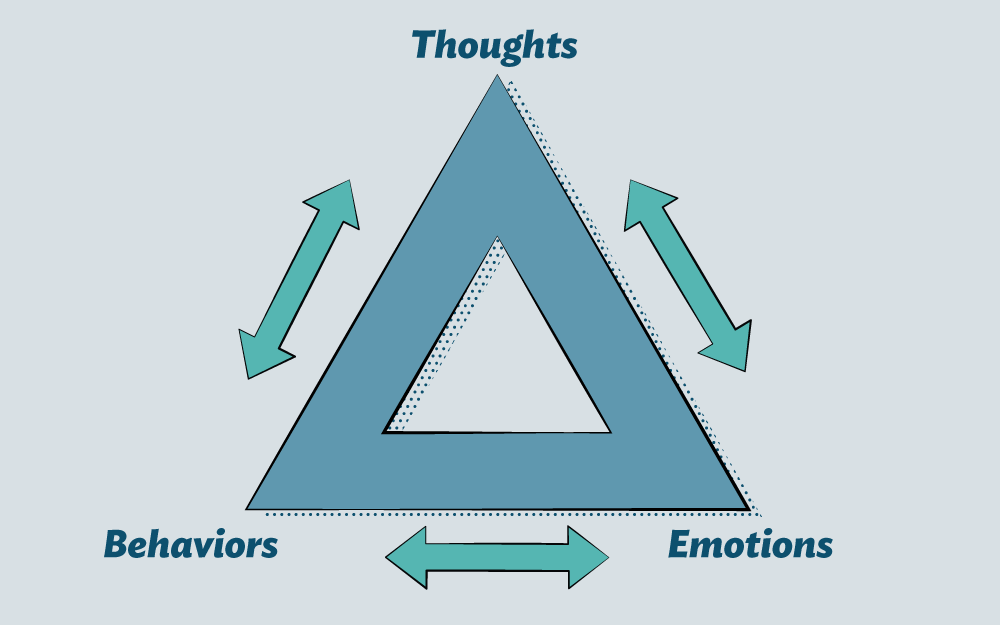Cognitive behavioral therapy, or CBT, is the foundation of evidence-based treatment at Rogers Behavioral Health.
CBT is a learning-based treatment focused on changing how patients behave and how they think. The basis of CBT is that our thoughts, emotions, and behaviors are interrelated, so by changing harmful and negative thought patterns to be more helpful and positive, maladaptive emotions and behaviors can also change.
One highly effective component of CBT for anxiety disorders like obsessive-compulsive disorder, is exposure and response prevention, or ERP. Rogers’ therapists work with patients to develop an extensive hierarchy of their fears, then gradually and systematically expose patients to them which leads to reduced anxiety and distress over time.
The American Psychological Association says CBT is highly effective for treating a variety of mental health conditions, including depression, anxiety disorders, substance use, and eating disorders, and is appropriate for people of all ages.
Numerous research studies and Rogers’ outcome data show that CBT leads to significant improvement in functioning and quality of life.
Dialectical Behavior Therapy
Dialectical behavior therapy, or DBT, is a type of cognitive behavioral therapy originally developed by Marsha Linehan. With its strong emphasis on emotion regulation skills, it’s also used to treat a wide range of mental health conditions.
At Rogers, patients learn how to accept uncomfortable or opposing thoughts and emotions, while realizing they have room for change.
DBT-informed skills Rogers’ patients may learn in treatment include:
- Mindfulness, or being present in your body and mind
- Interpersonal effectiveness
- Distress tolerance, or reacting in a wise manner, even if in distress
- Emotion regulation to reduce or improve self-defeating or self-harming behaviors
DBT helps patients increase compassionate, non-judgmental acceptance of themselves and react in a more effective manner, even if feeling distressed.
In Wisconsin, Rogers offers DBT Mental Health Recovery intensive outpatient programs in several locations. Additionally, at the Nashotah Center for DBT Adolescent Care, teen girls learn skills that lead to improved personal safety, relationships, self-esteem, quality of life, and resilience.
If you or a loved one are struggling with mental health or addiction, call 800-767-4411 for a free, confidential screening. Rogers offers inpatient and residential treatment in Wisconsin in addition to intensive outpatient in a growing number of communities nationwide.


